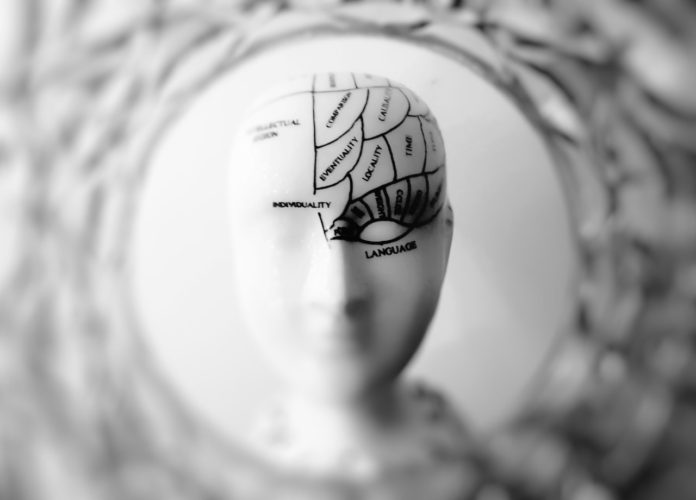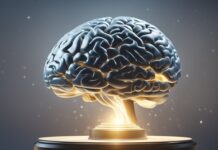
Did you know that depression and anxiety are growing substantially year over year, almost all over the world? There are many reasons ranging from lack of physical activity, lack of security, lack of proper food, and lack of freedom in some cases.
On the other hand, one thing that we humans are not lacking is the amount of information we receive every day, hour, and minute. This category is for sure off the charts. And this is also one of the main reasons why so many people are so depressed and suffering from anxiety disorders.
Anxiety and depression almost always go hand in hand, one along with the other. And while anxiety was somehow widely popular during the 1950s and 1960s, depression was not so pronounced.
Today we still have a boom of anxiety all over, but now depression is also gaining popularity rather fast. In the recent history of psychiatric diagnosis, this is a rather intriguing question – how come did depression grow so much in recent years, and why is that happening? A possible cause of that could be too much information that we are getting every day.
Combine that with the type of information most people are receiving, and we have a big concern on our hands. Most information is focused on our fear emotions. While fear is normal and a good instinct, it should be natural emotion and a survival mechanism and not based on everyday information we receive via mainstream news. When we confront an apparent threat, our bodies respond in specific ways. Physical reactions to fear include sweating, increased heart rate, and high adrenaline levels that make us particularly alert.
THIS should not happen constantly. And unfortunately, because of how information is served to us every day, many people trigger their fear mechanisms all day, every day. Adding to this, we know that fear is one of the best mechanisms to control people. Over time this then triggers depression and anxiety while we never realize that the stressor, in this case, is an overflow of negative and unnecessary information.
History of Information Publishing and Information Overload Progression

Information overload dates back to Gutenberg. He basically introduced printing to Europe with his inventions, most notably – the movable-type printing press. This led to a proliferation of printed material that quickly exceeded what a single human mind could absorb in a lifetime. After that, we had many similar inventions that only speeded up the production and replication of a huge amount of information on paper.
Photocopier first comes to mind here. And then came the digital world, where everyone could produce and replicate an unimaginable amount of information. With digitization, the internet, and television – information started popping up every second from everywhere. While there are many valuable sources of information, and we should be grateful that we have all world’s knowledge literally on our smartphones, relevant and valuable information is hard to find. This is because media companies depend on profit, and they serve us information that is bombastic, thus receiving more clicks which gives them in return more money.
But that kind of bombastic information, which is needless to say mostly negative, is impacting our brains. Many (ex) executives from Facebook, Google, and many others have criticized what is happening today with information overload, and our need for instant dopamine hit, that is – constant new information articles, new notifications, or new likes. Many studies have associated information overload with anxiety and depression, and the trend is getting worse every year. So, it’s a lot of stuff we are receiving and processing on a daily basis, but what precisely is the problem? In the article written in Harvard Business Review, “Death by Information Overload,” Paul Hemp explains it very well:
“Researchers say that the stress of not being able to process information as fast as it arrives – combined with the personal and social expectation that, say, you will answer every e-mail message – can deplete and demoralize you. Edward Hallowell, a psychiatrist and expert on attention-deficit disorders, argues that the modern workplace induces what he calls “attention deficit trait,” with characteristics similar to those of the genetically based disorder. Author Linda Stone, who coined the term “continuous partial attention” to describe the mental state of today’s knowledge workers, says she’s now noticing “e-mail apnea”: the unconscious suspension of regular and steady breathing when people tackle their e-mail. “
Now we are getting to the real problem and impact of information overload. People are even unconsciously changing their behaviors based on the information they receive. So, our behavior is changed, our view of the world is changed, and all that because of media and social network companies making more profit.
This is for sure alarming if you’re looking at it with an awakened brain. How much can our baseline be changed based on the type of information we’re served every day? A lot, as it seems.
And how many more depressed people around the world until something changes? I personally think it will not stop any time soon because it is a ripple effect – more negative information means more profit for media companies, more negative information means more depressed people, more depressed people mean more depression medications taken every day, and more medications consequently bring more profit for pharmaceutical companies.
And so, it goes. One vicious circle, and we are surely trapped in it.




















